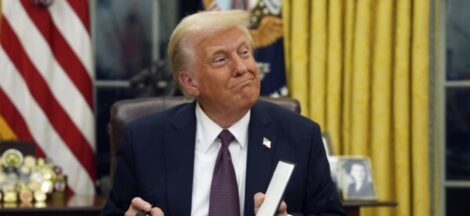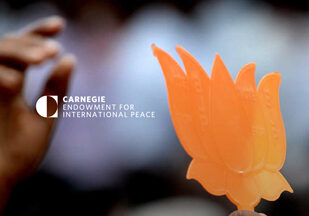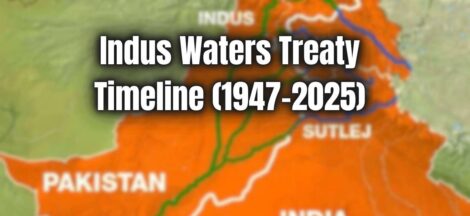By Karl Engels
After an 11-day war that killed more than 240 Palestinians and 12 Israelis, a fragile ceasefire between the right-wing government of Israeli Prime Minister Benjamin Netanyahu and the Islamist Hamas militants that rule Gaza took hold early Friday morning. Activists inside Israel—Jewish and Arab alike—hailed the cessation of open fighting but said the conditions for a permanent peace are still lacking.
Achieving that, according to them, means ending Israeli expulsion of Palestinians from their homes, stopping anti-Arab discrimination within Israel, and ultimately terminating the occupation of Palestinian territory altogether.
Sally Abed, a leader of Standing Together, the largest united Jewish-Arab grassroots peace coalition in Israel, said Friday, “The ceasefire had to happen, however, it does not end the siege on Gaza, the occupation in the West Bank and East Jerusalem, nor the systematic oppression of Palestinians in Israel.”
Another spokesperson for the organization, Uri Weltmann, predicted that without major changes in Israeli policy, the current cessation of hostilities will be a temporary one. “Next around the corner: The bombings in Gaza again, running to shelters in Ashkelon and Tel Aviv again, another wave of violence within Israel.”
Civilians on both sides will once more pay the price, just as they have in the current fighting, Weltmann said, “unless we completely change the [Israeli] state’s attitude.” And as has been obvious for a long time, changing the Israeli state’s attitude will have to be matched with changing the attitude of its biggest backer—the United States government.
Activists in Israel lay the bulk of the blame for this latest round of warfare on the Netanyahu government, which deliberately provoked Palestinians by escalating forced expulsions in the East Jerusalem neighborhood of Sheikh Jarrah to make room for Jewish settlements.
Aida Touma-Sliman, a member of the Knesset (parliament) from the Communist Party of Israel, wrote on Thursday that Netanyahu’s provocations “can only be seen as a bid to remain in power.”
She referred to the gridlock resulting from Israel’s recent inconclusive parliamentary elections. Netanyahu has failed four times to form a new government and only remains prime minister in a caretaker role. He is also currently on trial for corruption. Touma-Sliman said that Netanyahu matched the military assault against Gaza with a domestic campaign of racist incitement against Palestinians—all aimed at shoring up his own political position.
Whereas Palestinian outbursts of rage and protest in the streets have largely been spontaneous reactions to repression and attacks, Touma-Sliman says that organized extreme right-wing Jewish nationalist groups have been behind a lot of the violence within Israel. Around 20% of the country’s population are Palestinians who are effectively second-class citizens, especially under Netanyahu and his drive to cement Israel’s status as a Jewish supremacist state.
The Knesset’s passage of a 2018 Jewish Nation-State Law codified anti-Arab discrimination and gave a semi-constitutional blessing to Palestinian expulsions and declared “the development of Jewish settlement as a national value.” At the time, AymenOdeh of the Arab Joint List of parties in the parliament, which includes the Communist Party, called the law “the death of our democracy.”
Against this backdrop, Netanyahu has emboldened “fascist thugs…with a clear political agenda,” Touma-Sliman observes. They who have organized lynch mobs and assaulted Palestinian civilians, using the current war as cover. Television cameras have captured such mobs pulling people from their cars, beating them in the streets, and chanting “Death to Arabs.”
Incidents like these are why groups like Standing Together are devoting attention to putting the spotlight on the united opposition to Netanyahu’s racism and division inside Israel. “After the ceasefire and now, the struggle for a Jewish-Arab partnership and peace must continue,” leader Alon-Lee Green said Friday. “A voice must be raised against the endless escalations and against the settlements.”
With some of his main competitors forced by political circumstance to get in line behind the prime minister’s campaign against the Palestinians, Netanyahu may yet achieve his goal of uniting the right and staying in office.
Yair Lapid, head of the centrist Yesh Atid party and the person mandated to try and form the next government, has backed the war against what he termed “terror organizations.” Parliamentarian Itamar Ben Gvir of the far-right nationalist Otzma Yehudit party even went to the extent of attempting to set up a “constituency office” for Jewish settlers in Sheik Jarrah as a way of cementing Israeli control there.
Agreeing to a ceasefire so quickly could cost Netanyahu some of his political gains, though. He faces criticism from some among his base for not inflicting even more damage on Palestinians, but he defensively claims that Israel has done “daring and new things” without “being dragged into unnecessary adventures.”
The inconclusive outcome of the fighting, meanwhile, is allowing Hamas to claim victory. It managed to score multiple hits on Israeli civilian areas with the more than 4,000 rockets it fired over the last several days. The militant group, which is dedicated to the transformation of Palestine into an Islamic state, is widely condemned for repeatedly torpedoing past peace prospects, but it still remains the closest thing to a government that exists in Gaza.
Considered a terrorist organization by the U.S., Israel, U.K., the E.U., and several countries, Hamas became known internationally for opposing the Israel-PLO accords of the 1990s. Among Palestinians on the ground, however, Hamas’ social welfare programs—including medical clinics, schools, and more—have won it a considerable measure of popular support. It has governed Gaza since elections in 2006.
Though it may see an uptick in public support among Gazans in the short term, the challenges ahead will put Hamas’ ability to govern to the test. Gaza was already reeling from the crushing burden of the coronavirus pandemic, mass unemployment, and the Israeli economic blockade. The military attacks of the past 11 days have only worsened the situation, hammering Gaza’s electricity, water, and other infrastructure. The toppling of several apartments by Israeli bombers has also left thousands homeless.
Given that the United States remains Israel’s premier military backer and diplomatic protector internationally, Washington’s role in resolving (or escalating) the conflict is always key. After several days of urging caution on the part of Israel, President Joe Biden finally came out in favor of a full ceasefire. His administration’s support of a new $735 million weapons allotment to Israel, however, continues to raise criticism from progressive U.S. lawmakers.
Sen. Bernie Sanders has moved a resolution in the Senate to force the military deal to go to a Congressional debate. Speaking just before the ceasefire was announced, Sanders said, “At a moment when U.S.-made bombs are devastating Gaza, and killing women and children, we cannot simply let another huge arms sale go through.”
He has also repeatedly hit back against “both sides” analysis on the part of many political commentators who have sought to equate Palestinian resistance with Israel’s massive military machine. “Why,” Sanders has asked, “do we seem to take notice of the violence in Israel and Palestine only when rockets are falling on Israel?”
The majority of the population in Israel, Arab and Jew, believes in a vision of living together in security, peace, and equality. Mobilizing that majority is the immediate task ahead for progressives there. (IPA Service)
Courtesy: People’s World



